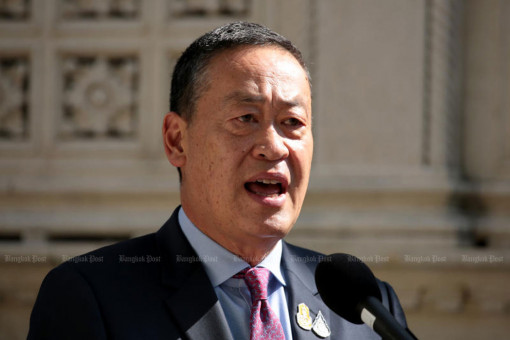Increased tariff ‘too high’ for households
PUBLISHED : 1 Dec 2023 at 05:22

Prime Minister and Finance Minister Srettha Thavisin will hold a discussion with relevant agencies after news emerged that the Energy Regulatory Commission (ERC) is planning to raise the power tariff from 3.99 baht per unit to 4.68 baht per unit from January-April next year.
News of the possible rate increase has prompted renewed calls for the government to revamp the country’s allocation of domestic natural gas supplies to ensure access and fair prices.
“The rate is unacceptable. It’s too high. As chairman [of the ERC], I’ll call a meeting to discuss the rate. I can’t allow that,” he said.
That said, he conceded that the power rate is likely to be raised anyway, though by how much has yet to be decided. He also insisted the government will find a win-win solution, both for consumers and plant operators.
When asked if the government will review the country’s energy structure, Mr Srettha said the issue “will be discussed”.
The cabinet agreed to cut the power tariff from 4.45 baht to 4.10 baht per unit in an effort to help reduce the cost of living on Sept 13. Another meeting held on Sept 18 decided the rate would be further decreased to 3.99 baht per unit from September to December.
The reduction was proposed by Energy Minister Pirapan Salirathavibhaga following talks with the ERC.
Responding to the prime minister’s statement, Pongpol Yodmuangcharoen, spokesman for the Energy Ministry, said on Thursday the new rate of 4.68 baht per unit is only a suggestion.
The final decision has not been made as it is subject to review by Mr Pirapan, he said.
He said he was confident that the new power tariff would be lower than the proposed rate. “It’s based on an initial calculation by the ERC that is based on a sole factor, which is debt repayments to Egat,” he said.
The spokesman said Mr Pirapan had asked all agencies concerned to find ways to ensure electricity prices remain reasonable after the New Year holiday, adding ideally, the rate would be set at a little over 4 baht per unit.
Meanwhile, Isares Rattanadilok na Phuket, vice-chairman of the Federation of Thai Industries (FTI), said the government is unlikely to adopt the proposed rate and will find ways to push the costs down.
He said the private sector has made some suggestions, including the reallocation of natural gas in the Gulf of Thailand, adding that he thinks the power tariff should not exceed the current rate of 3.99 baht per unit.
It is reported that the ERC’s calculation took into consideration the impact on consumers and Egat’s long-term sustainability. The higher rate is meant to compensate for rising fuel costs, offset some losses the Egat absorbed and provide it with the necessary liquidity to service its debts.
Woraphop Wiriyaroj, a list-MP from the Move Forward Party, said electricity bills are expensive because, in Thailand, power generation relies on LNG imports while much of the domestic supply goes to petrochemical industries.
He said natural gas in the Gulf of Thailand, which is cheaper, should be reallocated for generation to help bring down electricity bills. He called on the government to act fast to bring down power bills.

